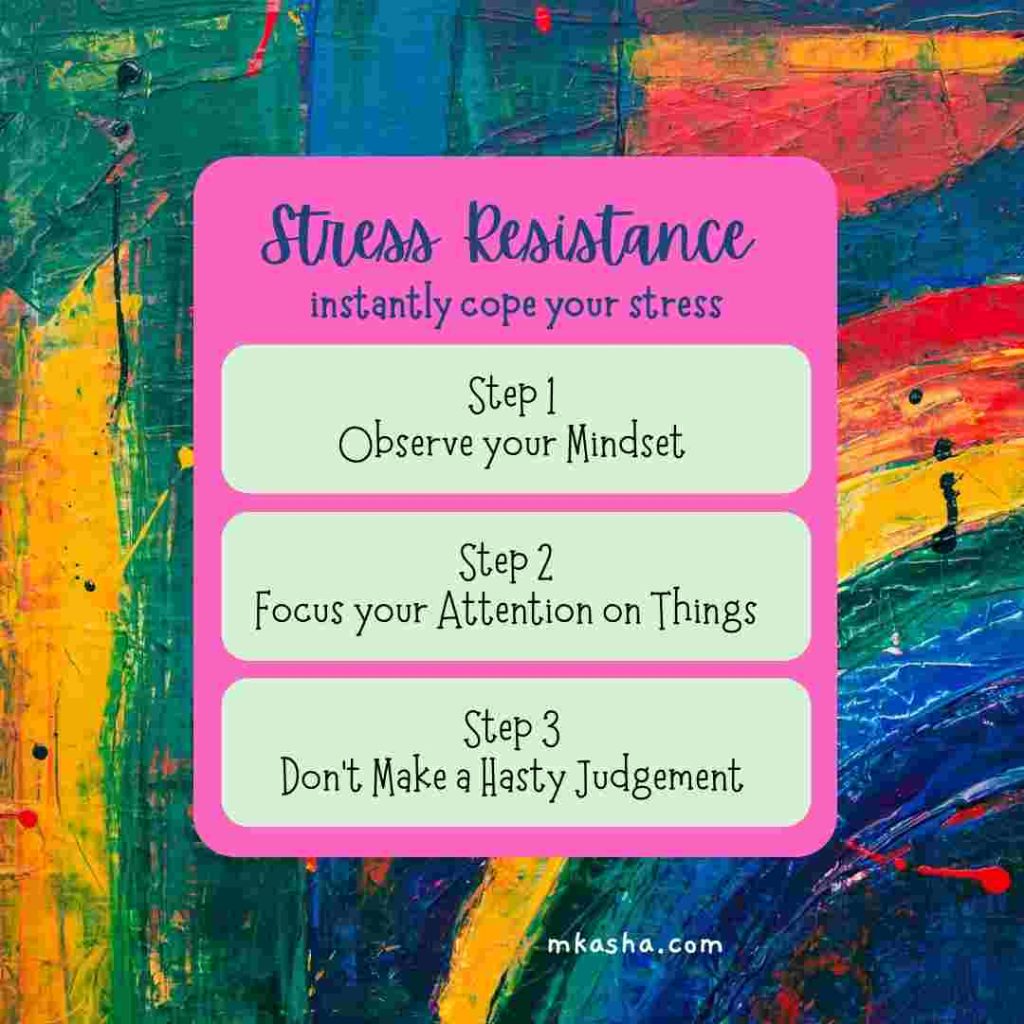Have you ever heard of resilience? It means being able to adapt to the inevitable pressures and setbacks of life. Those who often feel unhappy or regret their behavior often should work on their resilience. You can find out how to do this here.
How happy we also depend on how well we deal with stress and difficult life situations without lasting impairment.
This psychological resistance (resilience) can be specifically trained by observing yourself in everyday life and changing it step by step.
Experts from the Mayo Foundation for Medical Education and Research (MFMER) explained in a guest post on ‘self’ which tactics you can use to increase your resilience and have more joy in life.
7 Steps to Formulating Goals Correctly
Table of Contents
Tip 1: Observe your mindset
“When you become more aware of your thoughts and actions, you can identify patterns and areas in which you can improve,” say the experts. In addition, you can also see what you are already doing well.
“The next time you feel stressed, stop for a moment and watch your reaction to it,”
advises the MFMER.
If you then ask yourself where the negative reaction is coming from, you can choose a different reaction or mindset.
That may sound very abstract at first. But, according to the experts, there are more concrete things you can pay attention to in order to bring more mindfulness into your life.
10 Proven Confidence Building Exercises
- Listen to your body: How does your body react to stressful situations? Do you clench your jaw or bite your fingernails? Do you notice your heart rate increasing? Do your thoughts keep revolving around the same problem?
- Write it down: Make a list of your personal signs and symptoms of stress. This will give you a moment to clarify the above questions.
- Change your perspective: Pay attention to what your inner being is telling you in the moment of stress. Then you can ask yourself whether what you are telling yourself is even true and rational.
Stress often triggers irrational thoughts – so you look at the situation from a different perspective.
Environmental Sins || 7 Deadly Sins of the Environment
Tip 2: Focus your attention on things
“A good technique for dealing with stressful situations is to focus your attention on the present moment,” says MFMER.
This will reduce the mind’s tendency to get lost in “what-if” thoughts – and to become even more stressed by brooding.
“Focusing attention takes practice, especially in a world where text messaging, social media, and other distractions are beating down on us,” the experts added.
In order to develop this ability, one should concentrate on the details in one’s daily environment and on one’s own experiences. “Discover new aspects of old places and habits. Look for the beauty in the world, ”is the advice.
That too sounds easier said than done. These targeted measures can help you, for example.
Walkthrough the neighborhood: Pay close attention to your route and your surroundings. Be very aware of things like the branches and bark of the trees, the front doors you walk past, the stones along the way, and the barking of the neighbor dog.
Be fully present and try to include as much detail as possible. It can help to see the familiar world with different eyes.
- Reflection: After such periods of attention, think about how differently than usual you have felt. What has changed?
- Mindfulness in everyday life: Look for program points in your day where you can train your mindfulness, e.g. when eating. You will notice that you perceive the taste, aromas and textures of the individual dishes very differently. Or focus specifically on your breath for a while.
3. Tip: Don’t make a hasty judgment
Do you judge and categorize everything that you experience? “It would be better if …”, “If the others had only once …”, “I would have done it like this …” – thoughts like that don’t get you anywhere.
The experts advise: Fight the reflex of wanting to correct everything by forcing yourself to experience someone or something for three minutes without criticizing or wanting to improve it.
“If you delay your judgment, you make room for gratitude. Possibly what lies in front of you is already good enough – or at least okay as it is. “


Pingback: Refresh Mental Health: Keys to Caring for it in 2021 💐
Pingback: 7 tips for parents about their children 🌺